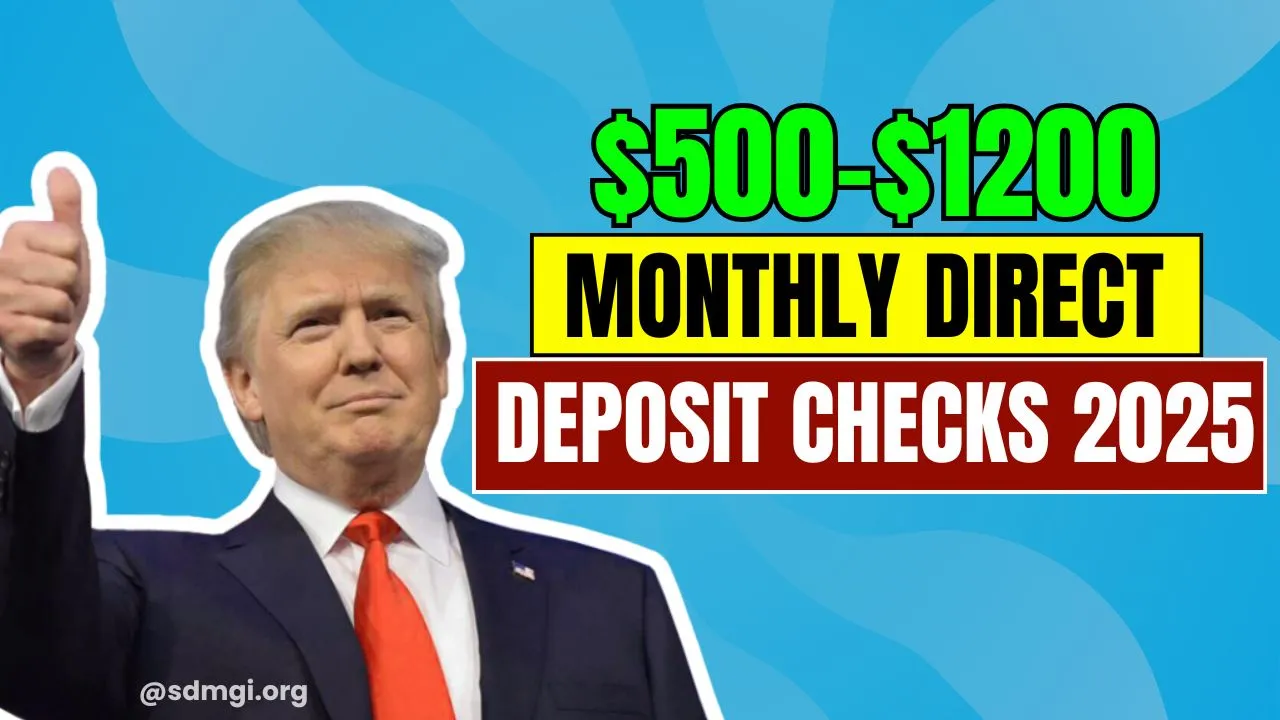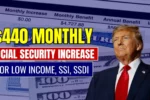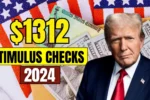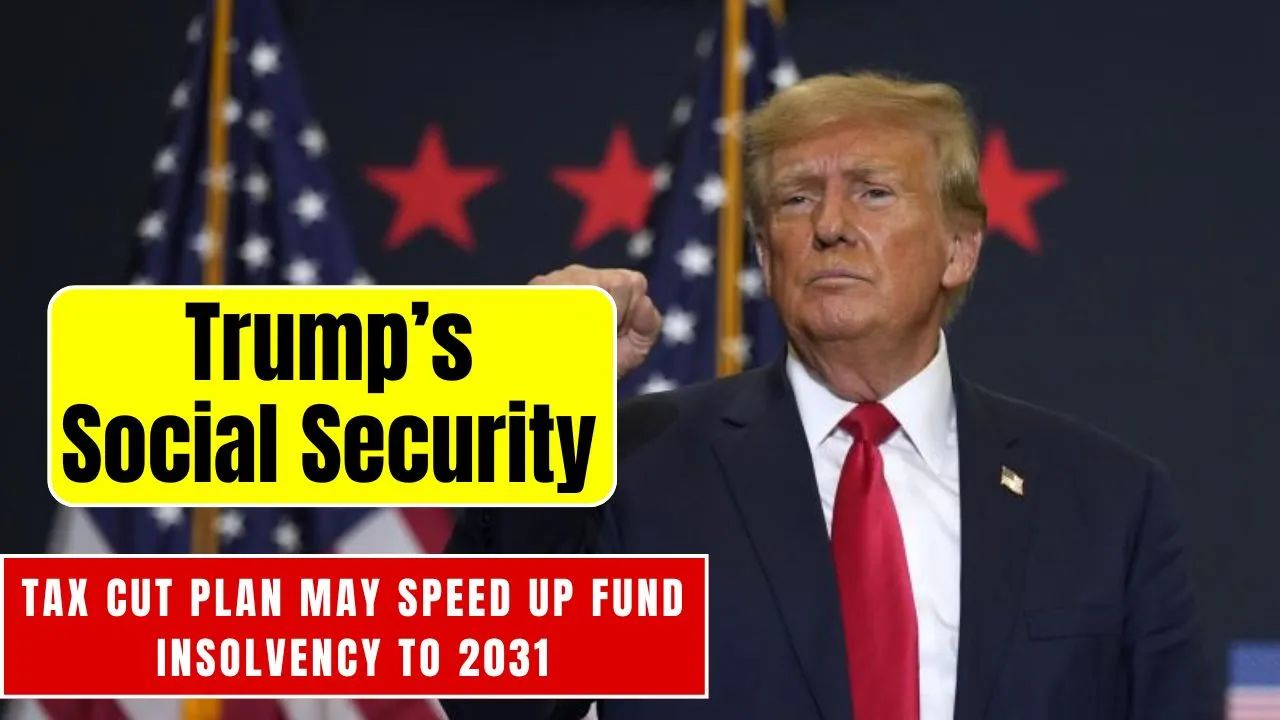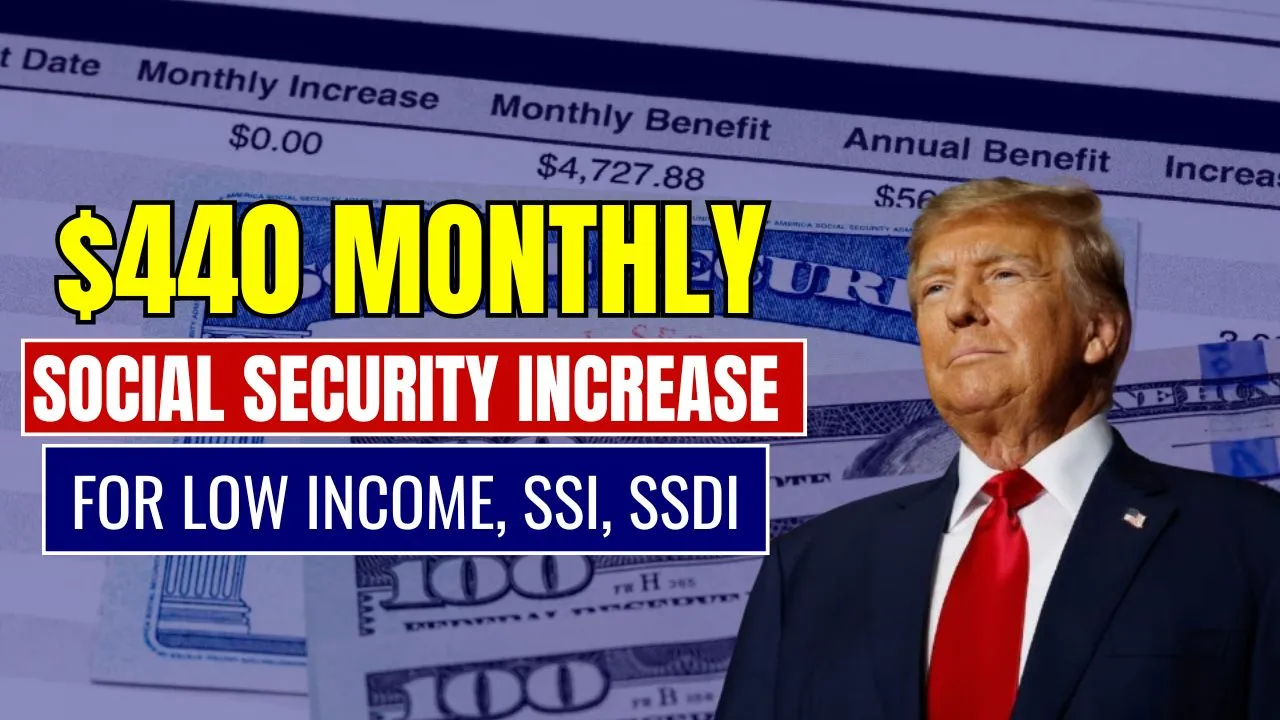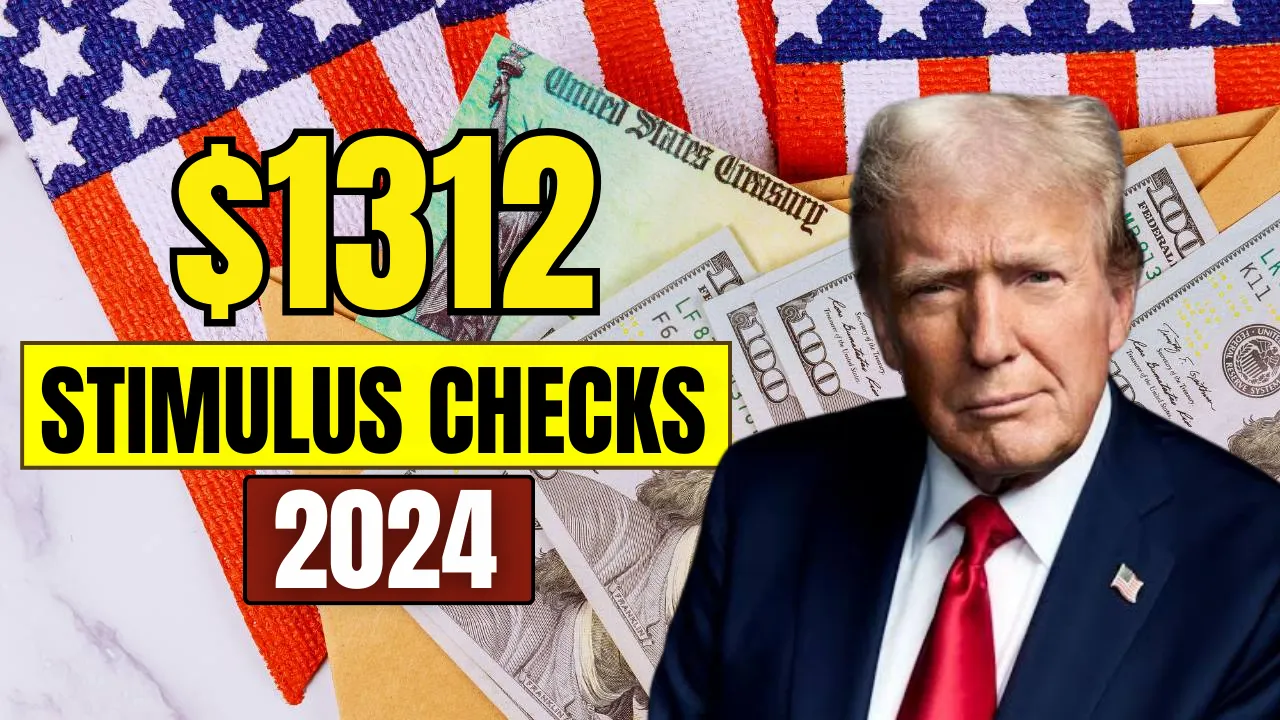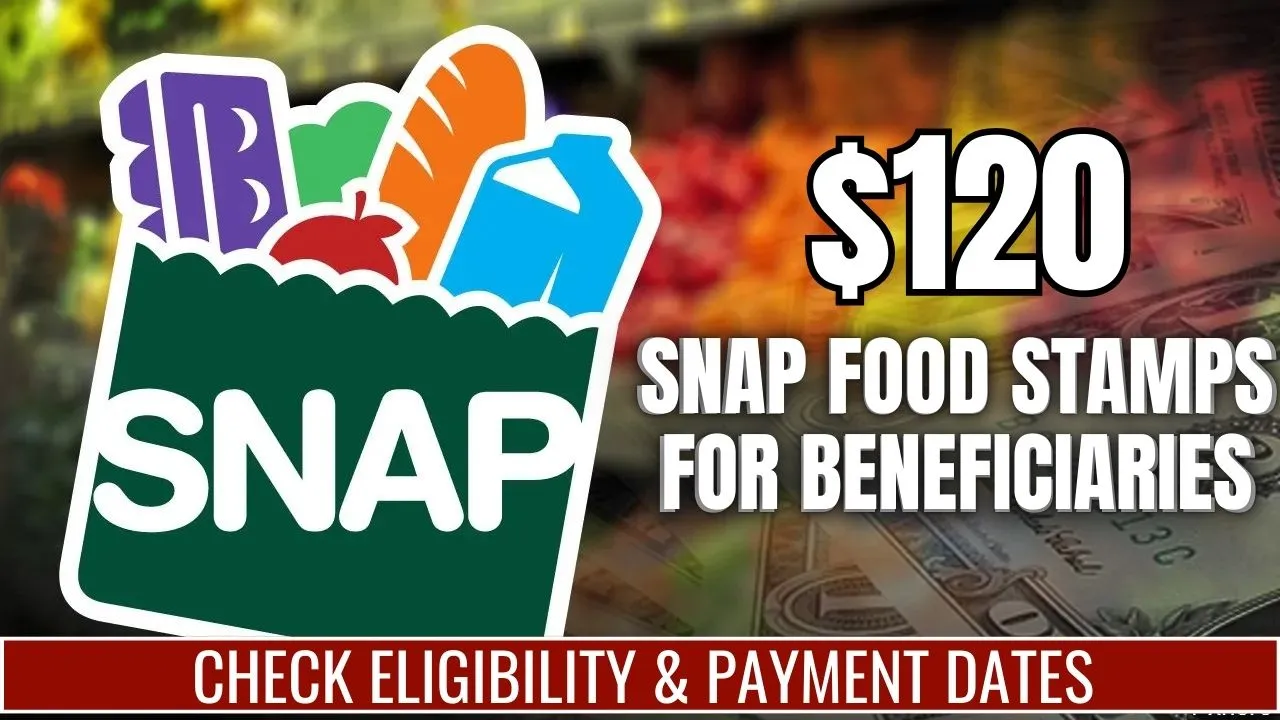$500-$1200 Monthly Direct Deposit Checks 2025: Amid rising living costs and financial uncertainty, discussions about new assistance programs often capture public attention. One such topic is the rumored $500-$1200 Monthly Direct Deposit Checks 2025. These potential payments have been the subject of online chatter, particularly among seniors and financially vulnerable groups seeking support. However, it is crucial to separate fact from speculation to make informed decisions and plan for the future.
This article explores the current status of these rumored payments, their possible implementation framework, and practical financial strategies for individuals. We also emphasize the importance of relying on official channels for accurate information.
Overview Table
| Details | Information |
| Payment Amount (Rumored) | $500–$1200 per month |
| Eligibility Criteria (Speculated) | U.S. citizenship, valid Social Security number, income limits |
| Targeted Group | Seniors (62+) and financially vulnerable individuals |
| Administrative Body (Expected) | Internal Revenue Service (IRS) |
| Payment Method (Proposed) | Direct deposit |
| Current Status | No official confirmation or authorization |
Current Status of the Rumored Payments
As of now, the $500-$1200 Monthly Direct Deposit Checks 2025 program has not been officially announced or confirmed by the federal government. The Internal Revenue Service (IRS), which typically oversees such programs, has not released any statements verifying the existence or planning of this initiative.
While the idea of monthly direct deposit payments has generated significant interest, citizens should be cautious of misinformation and rely exclusively on credible sources like the IRS’s official website (www.irs.gov) for updates.
What Is the Proposed Assistance Initiative?
The rumored program focuses on addressing financial hardships, particularly for seniors aged 62 and above. Rising inflation and increasing costs for essential items such as food, housing, and healthcare have made it challenging for individuals on fixed incomes to manage their expenses.
Although no concrete details exist, the proposal has been speculated to offer monthly payments of $500-$1200. If implemented, such payments would provide significant financial relief for vulnerable groups.
Speculated Eligibility Criteria
If the Monthly Direct Deposit Checks 2025 program materializes, eligibility might involve the following criteria:
- Legal U.S. Citizenship
- Applicants must be legal residents or U.S. citizens.
- Valid Social Security Number (SSN)
- A valid SSN would likely be required for identification and eligibility verification.
- Income Limits
- While not confirmed, income thresholds might prioritize individuals with lower earnings.
- Participation in Federal Programs
- Seniors enrolled in programs like SSI, SSDI, or VA benefits may receive priority consideration.
It’s important to understand that these criteria remain speculative and may change if the program becomes official.
IRS’s Potential Role in Administration
Should the Monthly Direct Deposit Checks 2025 program be implemented, the IRS would likely oversee its operations. As with previous federal assistance programs, the IRS would be responsible for the following:
- Eligibility Verification: Confirming applicants meet the criteria.
- Payment Processing: Ensuring secure and efficient disbursement.
- Distribution Oversight: Managing payments through direct deposit or cheques.
- Public Assistance: Addressing questions and resolving issues related to the program.
The IRS’s expertise in handling similar programs ensures accurate and timely delivery of funds to eligible individuals.
Payment Distribution Framework
If approved, the proposed payments would likely follow a direct deposit model, ensuring faster and safer disbursements. Here’s how the payment distribution might work:
Monthly Payments
- Eligible recipients could receive $500-$1200 monthly payments, ensuring steady financial support.
Direct Deposit Method
- Payments would be deposited directly into recipients’ bank accounts, reducing delays and administrative overhead.
No Official Timeline Yet
- Without confirmation of the program, there is no official timeline for when or how payments would be distributed.
Importance of Verified Information
Given the prevalence of rumors, it is essential to rely only on official government sources for accurate updates. Here are some key tips to avoid misinformation:
- Check Government Websites: Visit www.irs.gov regularly for announcements.
- Use Trusted News Sources: Cross-check claims with reliable news outlets.
- Be Skeptical of Social Media: Avoid believing unverified social media posts.
- Consult Financial Advisors: Seek professional advice when in doubt.
By staying informed through credible sources, individuals can avoid scams and misinformation.
Practical Financial Planning Strategies
While discussions about assistance programs continue, focusing on practical financial management is essential. Here are some actionable steps:
1. Create a Budget
- Track income and expenses to prioritize essentials like rent, utilities, and food.
- Identify areas where savings can be achieved.
2. Build Emergency Savings
- Even small, regular contributions to a savings fund can help prepare for unexpected expenses.
3. Maximize Current Benefits
- Ensure you are receiving the full benefits available through programs like Social Security, SSI, or SNAP.
4. Seek Local Assistance Programs
- Explore state and community-based resources for additional financial aid.
5. Stay Informed
- Monitor government updates to understand available opportunities and plan accordingly.
Safeguarding Against Scams
With increased discussions about rumored payments, the risk of scams rises. Protect yourself by:
- Verifying Claims: Always confirm details through official government channels.
- Avoiding Phishing Scams: Do not share personal information in response to unsolicited emails or messages.
- Using Reputable Resources: Refer to trusted fact-checking organizations to clarify rumors.
Government Program Implementation Process
Understanding how legitimate government assistance programs are developed helps distinguish valid initiatives from unfounded rumors. Key steps include:
- Congressional Approval: Funding and legislation must pass through Congress.
- Presidential Authorization: The President must sign the proposal into law.
- Agency Coordination: Relevant agencies, like the IRS, handle program execution.
- Official Communication: Clear announcements outline eligibility, timelines, and payment methods.
Without these steps, the program remains speculative.
FAQs
1. Are $500-$1200 Monthly Direct Deposit Checks confirmed for 2025?
No, the federal government has not officially announced or authorized such a program.
2. Who might qualify for these payments if implemented?
Speculated criteria include U.S. citizenship, valid Social Security numbers, income limits, and participation in federal programs like SSI or SSDI.
3. How can I verify information about assistance programs?
Check the IRS website (www.irs.gov) or consult trusted news outlets for accurate updates.
4. What should I do to protect against misinformation?
Rely on verified sources, avoid unconfirmed social media claims, and consult professionals when necessary.
5. How can I manage my finances in the meantime?
Focus on budgeting, building savings, maximizing current benefits, and exploring local assistance programs.
Conclusion
While the idea of $500-$1200 Monthly Direct Deposit Checks 2025 has generated interest, it is essential to recognize that no official program exists at this time. Staying informed through credible sources ensures you avoid misinformation and make sound financial decisions.
In the meantime, focus on strengthening your financial position through proven strategies like budgeting, saving, and utilizing existing benefits. By maintaining realistic expectations and planning wisely, you can navigate financial uncertainties with greater confidence.
